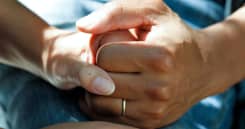Regular drug use can have massive ramifications on each person’s life. Still, it can be difficult to determine when professional treatment is necessary to overcome an addiction to drugs. Each individual will have their own unique journey to sobriety ahead, depending on their individual needs, goals, the drug being used, and more. Thus, knowing when to consider and pursue professional treatment for drug use is necessary. While the commitment to a dedicated treatment program can feel intimidating, there are signs to look for that may indicate that such professional marijuana, opioid, benzodiazepine, or opioid addiction treatment is necessary for a healthier, sober life.
The Ubiquity of Drug Use
Drug use is common throughout the country. With a plethora of various addictive drugs that each individual may be exposed to, there is no single journey to sobriety. For some, legality discussions or laws around the use of recreational marijuana may create unhealthy understandings or perspectives around the drug, which can develop into addiction. Others may seek out more dangerous drugs and illicit drugs like heroin to achieve greater highs. Meanwhile, more and more individuals are being exposed to addictive drugs through medical prescriptions, such as prescription opioids and painkillers.

No person is somehow immune to addiction. While there are factors that can make certain individuals more likely to develop an addiction, such as having a direct family member diagnosed with addiction themselves, there is no way to completely avoid the risk of developing an addiction to drugs. However, regardless of how an individual is exposed to these addictive substances, knowing when to seek help from professional facilities like Hawaii Island Recovery to overcome their use is paramount for preventing further destructive consequences.

Supporting and encouraging change in veteran loved ones can be tricky. Hawaii Island Recovery's rehab in Hawaii can help. Call us today at (866) 390-5070.
More infoThe Destructive Effects of Drug Use and Addiction
Drug use affects each individual in unique ways, and its effects are rarely limited to affecting one single part of a person’s life. For many, the physical and emotional ramifications can be the first signs of addiction. Some examples include:
- Dangerous changes in heart rate
- Damage to lungs, heart, kidneys, or other internal organs
- Damaged or collapsed veins, especially if using intravenous (IV) drugs
- Increased chances of stroke
- Nausea and vomiting
- Increase in feelings of anxiety
- Depression
- Panic
- Difficulty forming or recalling memories
The use of drugs can also impact other parts of a person’s life, from their personal relationships to professional performance and attendance. Some of the signs that drug use is compromising these areas of a person’s life include:
- Calling out of work often on hangover or nausea
- Consistently being late or inability to tend to a regular schedule
- Decrease in efficacy at work
- Compromised focus
- Lack of regular hygiene or morning routine
- Compromised sleep schedule
- Self-isolation tendencies, such as avoiding family events, friends, or other social groups
With the widespread ubiquity of drug use, the various classes of drugs an individual may be exposed to, and each person’s unique culture and relationship with these substances, the journey to sobriety differs from person to person. Having a dedicated and personalized treatment program to address drug use and addiction is paramount to ensuring the most out of every day in a dedicated treatment program.
Knowing When to Pursue Treatment
The continued effects of drugs on the body and mind can be wholly destructive until professionally addressed. Knowing when to pursue professional treatment for drug addiction is paramount to prevent further consequences of drug use.

As each individual will have their own set of needs, it can be difficult to determine the need for professional treatment based on some kind of numerical metric efficiently, such as by arbitrarily deciding that using a specific amount of a certain drug is somehow “safe” or “unsafe.” Rather, it is more impactful to determine the need for professional treatment based on how the use of drugs may continue to impact daily life. Approaching treatment and recovery under this mindset can illuminate new perspectives on the effects of drug use on a person’s life.
Instead, asking more personal questions can be more illuminating, such as:
- Have you ever used more drugs than you intended?
- Has there been efforts to cease drug use in the past, but were unsuccessful?
- Does the use of drugs impede professional or personal responsibilities?
- Have you already questioned your own use of drugs or their impacts?
- Has there been any changes in a social group, or have you avoided or self-isolated in order to continue using drugs or out of fear that someone may ask about such drug use?
- Do you avoid gatherings or spaces unless drugs would be available or accepted at such functions?
- Have you engaged in high-risk behaviors, such as driving under the influence of drugs or using them at inappropriate times, such as at work?
Each of these questions does measure not only the frequency or intensity of use but also the relationship that an individual has with drugs and questions their daily impact on life. Professional treatment to address not just how an individual engages with drugs but also how it has impacted their lifestyle, perspectives, and more is paramount. Hawaii Island Recovery is committed to this kind of holistic and personalized healing.
Pursuing professional treatment for drug use is paramount to explore not just your relationship with drugs but also its impact on daily life, personal relationships, friends, and family. At Hawaii Island Recovery, we are committed to this kind of holistic care and treatment with proven modalities, spiritual healing, and more while curating an atmosphere of camaraderie and support throughout recovery. From marijuana and heroin to prescription opioid addiction treatment, our approach to recovery and sobriety blends the unique advantages of the Hawaiian islands with up-to-date and effective therapeutic modalities for a comprehensive treatment program. For more information on how we can personalize your time with us, call to speak to a caring, trained staff member today at (866) 390-5070.
 Hawaii Island Recovery
Hawaii Island Recovery 










